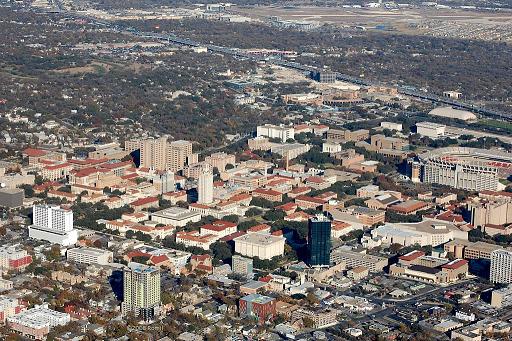For the first thought on missiology in a college context, click here.
Steve Lutz inspired these posts, so make sure you read what he is saying here.
—
We need a missiology of our context: Higher Education/Academia
Steve’s second assertion expands the vision of college ministries beyond simply thinking about students, but as the institution as a whole:
We should be asking, “What is it about Higher ed that makes it a particularly challenging, strategic, and exciting mission field? What are the common defeaters to belief here? What are the institutional, social, and cultural obstacles to the Gospel here? What would this sector of society look like if it was increasingly renewed by the Gospel?”
I am thoroughly excited about this kind of vision, which is thinking through the broader context of college ministry to include the whole institution, as well as the surrounding city. Why is it important to think this way? Because there are 16,500 faculty and staff at the University of Texas which means for every three students, there is one faculty or staff member who has a significant presence on campus.
The concept of campus missional communities will be instrumental in reaching the differing pockets of students around campus, but it will take the larger body of Christ to influence and reach into the entire spectrum of people on a campus. We have a number of professors and staff who are connecting with our local church, and I’m hoping to foster connections both between them and with students to help foster the questions of “how can I best incarnate the gospel in this place?”.
Secondly, there are a number of classes on our campus that consistently challenge students in their faith (including one in particular – The Rise of Christianity). It has been good practice to listen to students, and help them think biblically, critically and philosophically as the wrestle, often for the first time, with perspectives that challenge their long held assumptions. We are also in the process of developing resources which will help students with appropriate responses to these challenges.
Thirdly, there are a number of world-class Christian thinkers on our campus (J. Budziszewski, Marvin Olasky, Dan Brinks, etc.), and making students aware of these individuals and encouraging interaction with them. These are the most invested individuals in God’s movement on campus, and we’d be foolish to ignore interacting with them.
The largest barrier, I think, to engaging campus holistically tends to be the focus of personnel resources. Most people who are pursuing college ministry have a specific reason they get involved: the students. It’s difficult to prioritize meeting with professors and staff members at the university when you passion and expertise is with students.
The answer to the barrier is, in many ways, the local church. The resources already exist, and often times in fact are connecting with campus leaders, it’s just that the worlds don’t tend to overlap. We have the great blessing of having a local body that is reaching a growing diversity of ages and are connecting with students and professors alike, but for most campus ministries, a better strategy may be cooperating with existing churches and investigating where faculty and staff are engaging.
Engaging faculty and staff will give us a much broader understanding of the missiological setting of campuses, and the differing dynamics of reaching them.
—
I’d love to hear your thoughts, so chime in with a comment!



